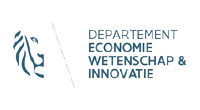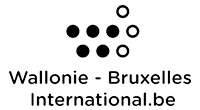-
Solutions to the social challenges of cities depend on the capacity of local governments
Published in 18/10/2018 11:13Researchers at the Center for Metropolitan Studies analyze the different dimensions of inequality and how public policies affect themRead more + -
New technology will enable metal parts manufacturing through 3D printing
Published in 17/10/2018 14:14A consortium of São Paulo universities, industries and research institutes plans to advance the development of additive manufacturing in combination with machining processesRead more + -
Little-known fruits are promising sources of bioactive compounds
Published in 17/10/2018 14:14Researchers have discovered that the rose myrtle of Southeast Asia is one of the greatest sources of a phenolic compound more active than the resveratrol found in the skin of grapesRead more +
News
About
In 2018, from October 8 to 10, the São Paulo Research Foundation (FAPESP), the Department of Economy, Science & Innovation (EWI), the National Fund for Scientific Research (F.R.S.-FNRS), the Research Foundation Flanders (FWO) and the Wallonie-Brussels International (WBI), will organize FAPESP WEEK BELGIUM. The symposium aims at strengthening the links between researchers from Brazil and Belgium with the objective of promoting research partnerships.
FAPESP is one of the major funding agencies for scientific research in Brazil. Funded by the public taxpayer, its mission is to foster scientific research in all fields of knowledge by awarding scholarships, fellowships and grants to investigators linked with higher education and research institutions in the State of São Paulo, Brazil.
FAPESP is aware that the very best research can only be done by working with the best researchers internationally. Therefore, it has established partnerships with funding agencies, higher education, private companies, and research organizations in other countries known by the quality of their research and has been encouraging scientists funded by its grants to further develop their international collaboration.
As part of these efforts, FAPESP has organized symposiums and exhibitions in several countries, in cities and states as Washington, D.C., Cambridge, North Carolina, California, Michigan, Ohio, Nebraska and Texas (US), Barcelona, Buenos Aires, Montevideo, Toronto, Salamanca, Madrid, Tokyo, London, Beijing and Munich. Now, Brussels, Liège and Leuven are added to this list.
The State of São Paulo has a population of 45 million and generates 32% of Brazil’s GDP. Under the State Constitution 1% of all state taxes are appropriated to fund FAPESP, which was put in motion in 1962.
The stability of the funding and the autonomy of the foundation allow for an efficient management of the resources that has had a sizable impact: while São Paulo has 16% of the Brazilian population and over 30% of the scientists with a doctorate in the country, the state responds for close to half of the country’s scientific articles published in international journals.
The effectiveness of research carried out in São Paulo is the combined result of several factors that include the quality of the state’s universities and institutes, the extraordinary productivity of its researchers, high rates of participation by private, São Paulo-based companies that function within the state’s R&D outlays, São Paulo’s outstanding infrastructure, and the existence of FAPESP, a well-designed state research-sponsoring agency governed, maintained by its directors with excellence and with autonomy over the past half century.
Within this context, in 2016 FAPESP applied $ PPP 533.9 million in scholarships and grants.
In accordance with the Foundation’s funding objectives, 39% of expenditure was earmarked for advancing knowledge, 8% was dedicated to supporting research infrastructure and 53% was allocated to supporting application-driven research.
FAPESP works in close contact with the scientific community: all proposals are peer reviewed with the help of panels composed of active researchers from the specific area. Many times scientists in São Paulo submit proposals for programs to the foundation which are carefully analyzed and, if deemed strong in academic terms, are shaped by the foundation into research programs that will constitute a set of related research projects in a given area.
Since FAPESP’s mandate is to foster research and scientific and technological development in the state, ideas for programs that couple world class research with contributions that will impact social problems are welcome.
Localização
Program
October 08th
-
08:30 a.m.
Registration
-
08:50 a.m.
Opening Remarks and Welcome Words by WBI and FAPESP
-
09:00 a.m.
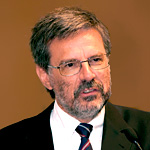
Carlos Henrique de Brito Cruz
São Paulo Research Foundation (FAPESP)
Presentation of FAPESP Scientific Director
An electronic engineer and a physicist, Brito Cruz is a professor at the Gleb Wataghin Physics Institute, of the State University of Campinas (Unicamp), where he was the rector from 2002 to 2005.
He graduated in electronic engineering at the Aeronautics Technology Institute of (ITA in the Portuguese acronym). He took a master’s degree and a doctorate at Unicamp’s Gleb Wataghin Physics Institute. He has been a professor at the Unicamp’s Physics Institute since 1982. Presently is a full professor at the Quantum Electronics Department.
Brito Cruz was a visiting researcher at the Quantum Optics Laboratory at the Universitá di Roma, at the Femtosecond Research Laboratory at the Universitè Pierre et Marie Curie. and a resident researcher at the AT&T’s Bell Laboratories, in Holmdel, New Jersey, and in Murray Hill, NJ. At Unicamp he was the Director of Unicamp’s Physics Institute from 1991 to 1994 and from 1998 to 2002; Pro-rector for Research from 1994 to 1998, and Rector of the university from 2002 to 2005. He was the the President of FAPESP from 1996 to 2002.
Brito Cruz is a member of the Brazilian Academy of Sciences and a Fellow of the American Association for the Advancement of Science. He received the Ordre des Palmes Academiques de France, the Order of the Scientific Merit from the Federative Republic of Brazil and the Order of the British Empire, Honorary (OBE) in 2015.
-
09:30 a.m.
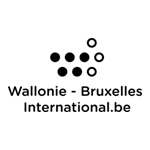
Jessica Miclotte
Wallonia-Brussels International (WBI)
Presentation of Wallonia-Brussels International
-
09:45 a.m.
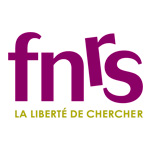
Arnaud Goolaerts
Fund for Scientific Research FNRS
Presentation of the Fund for Scientific Research
Short Bio
Dr. Goolaerts possesses a PhD in biomedical sciences and has performed doctoral and postdoctoral research at the University of California in San Francisco and a postdoctoral mission at the University Denis Diderot in Paris. He is since 2016 the Head of International Affairs at the F.R.S.-FNRS and in 2017 he cumulated this position with his current one, Director of External Affairs.
-
10:00 a.m.
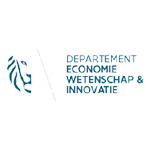
Peter Spyns
Department of Economy Science & Innovation (EWI)
Presentation of the Department of Economy Science & Innovation
Short BioPeter Spyns has obtained a MA in Romance Philology (1987), a MSc in Computer Science (1991) and PhD in Informatics (1996) at the K.U.Leuven. He is the coordinator for international policy of the EWI department.
-
10:15 a.m.

Isabelle Verbaeys
Research Foundation Flanders (FWO)
Presentation of the Research Foundation Flanders
Short BioIsabelle Verbaeys is bio engineer from the KULeuven, medicine PhD and postdoctoral fellow of KULEuven. Isabelle is FWO’s head of International Affairs.
-
10:30 a.m.
Coffee break
-
Session 01: Biotechnology - Aging and HealthChair: Arnaud Goolaerts
-
10:50 a.m.
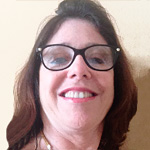
Maria Luiza Vilela Oliva
Biochemistry Department of Federal University of São Paulo (UNIFESP)
Role of natural compounds in inflammation, thrombosis and tumor development
Brazilian flora is considered an important source of natural products that may be beneficial to all mankind. Our research group has been conducting comparative studies of protease inhibitors from leguminous seeds, determining the primary, secondary and tertiary structures, as well as modeling of proteins, in order to identify residues of specific amino acids involved in its interaction with the target protease. Characterization of the interactions between the natural protease inhibitors or technically modified proteases and their targets are being investigated in many biological processes such as inflammation, hemostasis and thrombosis, and tumor development. We determined the high-resolution crystal structures of free EcTI, a Kunitz proteinase inhibitor, and of its complex with trypsin. The action of EcTI has been studied in inflammation, coagulation and tumor models since, in addition to trypsin, EcTI also inhibits plasmin, kallikreins, neutrophil elastase, and the activation of both MMP-2 and MMP-9. EcTI inhibited the adhesion, migration, and cell invasion of gastric cancer cells by decreasing their expression and by disrupting the cellular organization of molecules involved in the formation and maturation of invadopodium. Moreover, gastric cancer cells treated with EcTI exhibited a significant decrease in intracellular phosphorylated Src and focal adhesion kinase, both integrin-dependent cell signaling components. EcTI mediates the decrease of motility, invasion, progression, and adhesion of human melanoma cells, and in vivo, it impaired the development of murine melanoma by decreasing the tumor volume by 80-90%. EcTI also showed anti-inflammatory activity since the extent of roller, adherence, and migration of the cell behavior exacerbated in LPS-induced inflammatory response was reduced in the EcTI-treated group. Finally, as numerous studies have shown the relationship between cancer and coagulopathy, the antithrombotic action of this protein, in a model of arterial thrombosis, was also investigated and the inhibitor was able to prolong the time to total occlusion of the carotid artery, indicating that this potent plant inhibitor is also able to prevent thrombosis. Thus, EcTI may contribute to the elucidation of biochemical pathways involved in inflammation, tumor repression, and thrombosis, among other pathogenic conditions.
Support by:
FAPESP (Thematic 2017/06630-7)
UoN/UoB - University of Birmingham & University of Nottingham (UoN/UoB 2017/07972-9)
Short BioGraduation in Chemistry from Faculdades Oswaldo Cruz (1978), master's at Biochemistry from Universidade Federal de São Paulo (1981) and doctorate at Biochemistry from Universidade Federal de São Paulo (1988). Has experience in Biochemistry, focusing on Biochemistry, acting on the following subjects: kallikrein, proteinase inhibitors, kunitz, kunitz inhibitor and leguminosae. Read more at: www.bv.fapesp.br/en/pesquisador/42.
-
11:05 a.m.
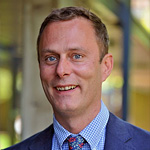
Cédric Blanpain
Université libre de Bruxelles (ULB) / Founder of the Chromacure spin off company
Stem cells and cancer
Short BioCedric Blanpain is full professor of Stem Cell and Development Biology and investigator of the WELBIO (Walloon Excellence in Life science and Biotechnology) at the IRIBHM, Université Libre de Bruxelles (ULB). Cedric Blanpain received several prestigious awards and fellowships including the career development award of the HFSP, EMBO young investigator, ERC starting grant, Outstanding Young Investigator Award of the International Society of Stem Cell Research (ISSCR). Cédric Blanpain is also Member of EMBO since 2012. His research group is studying the mechanism regulating stem cell fate decision during embryonic development, tissue homeostasis and repair as well as the implication of stem cells during cancer initiation and growth.
-
11:20 a.m.
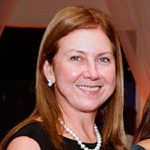
Dirce Maria Carraro
A.C.Camargo Cancer Center
From Cancer Genomics to Personalized Oncology
Dr. Carraro has been mainly committed to study hereditary cancer syndromes, which are disorders that predispose individuals to develop certain types of tumor. Her group has dedicated in the characterization of pathogenic mutations in known genes associated to the main cancer syndromes in identifying new candidate genes connected with these hereditary conditions and finally in the classification of new genetic variants with no known clinical significance that are found in patients suspect of having Hereditary syndrome. Brazilian population is not a well-characterized population in genetic terms and defining the pathogenicity of variants of unknown clinical significance found these genes is crucial.
Tumor genomics profiles have been fundamental to depiction of the causes of arising and progression of tumors. Identification of altered genes that lead to activation or inactivation of crucial pathways involved in cell survival, cell fate and genome maintenance has been crucial for understanding the biology of tumors and to find biomarkers for distinct purposes in the cancer field. Breast cancer is one of her areas of interest. Her group has been dedicated to two different aspects - the progression of in situ ductal carcinoma (DCIS) to invasive disease and in the relationship of BRCA1 germline mutations and triple negative breast cancer (TNBC). In DCIS, her group has been working in the identification, in the pre-invasive stage, of molecular alterations important for DCIS progression, since this is imperative to adjust the DCIS patient’s management, avoiding overtreatment and maintaining the excellent survival rate. In TNBC, a very aggressive breast tumor subtype with heterogeneous clinical and molecular aspects, her interest is in defining the genetic and molecular mechanism that are operating in both TNBC groups, hereditary and sporadic.
Another important contribution from her group is in Wilms tumor (WT), an embryonal pediatric renal tumor. Her contribution has been in the definition of molecular and genetic alterations that underlies WT formation. Her group was pioneer in the identification of a recurrent somatic mutation in Drosha gene (p.E1147K) and other non-recurrent somatic mutations in other microRNA processing genes, defining the disturbance of the microRNA biogenesis as an important mechanism associated with WT tumorigenesis.
In the area of precision oncology, an approach for individualizing cancer treatment for each patient based on the genetic characteristics of the individual and of its tumor, her group has been providing genetic data of tumors in both clinical and research settings for improving the clinical care under an evidence-based model. In this area, liquid biopsy analysis, a non-invasive approach for detecting tumor-acquired mutations in cellfree DNA in various body fluids, have been established in ACCCC for monitoring treatment response and anticipate progression and relapse.
Summarizing, she has been applying her genomics background to do primary discoveries in hereditary cancer, tumor biology and personalized oncology, with focus in translating the research findings into practice by transferring the newest application of genomics to the most important oncological tests for precision oncology and hereditary cancer.
Short BioGraduation degree in 1985 at ESALQ/ University of São Paulo, MsC degree in 1990 at ESALQ/University of São Paulo, and her PhD degree in 1998 at IQ/University of São Paulo, Brazil. During the PhD period, she spent 2 years in University of Dusseldorf – Germany. From 1998 to 2001 she developed her Postdoctoral research at ESALQ/University of São Paulo, acquiring experience in genomics by participating in the first genome project of Brazil and also in Cancer Genome Project. From 2001 to 2006 she was senior researcher at the Ludwig Institute for Cancer Research. From 2004 to 2017 she coordinated the DNA and RNA facility, as part of the AC Camargo Cancer Center (ACCCC) biobank. Since 2006, she is the Principal Investigator of Genomics and Molecular Biology group and since 2010 is coordinating the Laboratory of Genomic Diagnostics at Pathology Department/ACCCC. She is a Council Member of the Post Graduation Program in Oncology at The Fundação Antonio Prudente/ACCCC since 2011 and advisor member since 2004. From 2010 to 2018 she acted as president of Internal Biosafety Committee linked to Ministry of Science and Technology, and since 2016 she is associated editor of Applied Cancer Research, a Brazilian open access, peer-reviewed journal in the field of oncology. Read more at: www.bv.fapesp.br/en/pesquisador/8451.
-
11:35 a.m.
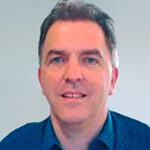
Niels Hellings
Hasselt University (UHasselt)
Aging of the immune system: can we measure it and should we stop it?
Short BioNiels Hellings (°1973) is director of the Biomedical Research Institute (BIOMED) and Professor of Immunology at the Faculty of Medicine and Life Sciences, Hasselt University. His work is funded by Methusalem, Hercules, FWO Flanders, (SBO)-IWT, IUAP, The Belgian Charcot Foundation and Hasselt University. He is an expert member of the FWO Med3 commission and board member of the Belgian Immunological Society and Flanders Vaccine vzw. His research is focused on immune mechanisms that limit autoimmune mediated central nervous system damage in the context of multiple sclerosis (MS).
-
11:50 a.m.

Q&A
Questions and answers from the session
-
12:20 p.m.
Lunch
-
Session 02: Biotechnology / AgrobusinessChair: Marie-Anne Van Sluys
-
02:00 p.m.
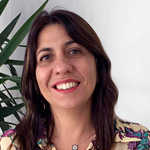
Alessandra Alves de Souza
Agronomy Institute of Campinas (IAC)
Applied knowledge in plant-pathogen interaction aiming plant disease control
We have been working on plant-pathogen interaction, specifically on citrus and bacterial pathogens, to find alternatives to impair the disease and discover new products to be used in the field. Among some strategies already in progress, we will point out the use of N-acetylcysteine (NAC) to control Xylella fastidiosa (a multi-host pathogen) and Xanthomonas citri, which cause citrus variegated chlorosis (CVC) and citrus canker (CC) disease in citrus, respectively. In our previous studies we have demonstrated that biofilm formation is important for pathogenicity of both bacteria, in a mechanism similar to bacteria that cause human diseases. Thus, looking for molecules used in medicine that could be applied in the field, which means low cost and environmental safety, we started working on NAC. This molecule is an analogue of cysteine that can disrupt disulphide bonds and has antioxidant and antimicrobial properties. We demonstrated that NAC can disrupt X. fastidiosa and X. citri biofilm in vitro and significantly decreases bacterial population and symptoms of CVC and CC in greenhouse and field conditions. Due the potential of NAC for X. fastidiosa control and also in decreasing oxidative stress in plants, this approach has also been used in a collaborative European international project “Xylella Fastidiosa Active Containment Through a multidisciplinary-Oriented Research Strategy” - XF-ACTORS (http://www.xfactorsproject.eu/) to try to control X. fastidiosa causing olive quick decline in Italy. Aiming to use NAC as an alternative to control bacterial disease in citrus, as well as in other hosts, it was recently approved a PIPE (Innovative Research in Small Business FAPESP program) and a FAPESP thematic project.
Short BioGraduate at Biology from Universidade Católica de Pernambuco (1992), master's at Microbiology from Universidade de São Paulo Esalq (1996) and Ph.D. at Genetics and Molecular Biology from Universidade Estadual de Campinas (2004). Post-Doc at University of California Berkeley. Has experience in Genetics, focusing on Molecular Biology of Plant and Microrganisms and molecular plant-microbe interaction. Read more at: www.bv.fapesp.br/en/pesquisador/2754.
-
02:15 p.m.
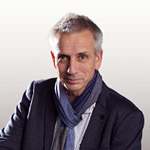
Yvan Larondelle
Faculté des Bioingénieurs AGRO Louvain (UCL)
Giving an added value to neglected food commodities in bioactive coumpounds
Short BioSince September 1992, Assistant Professor, Lecturer (September 1995), Professor (September 2000) and then Full Professor (September 2006) at the Faculty of Biological, Agricultural and Environmental Engineering (formerly Faculty of Agricultural Sciences) of the University Catholic Leuven (UCL).
-
02:30 p.m.
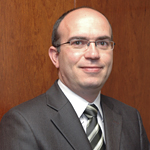
Marcelo Menossi Teixeira
Institute of Biology of Unicamp (IB Unicamp)
Translational research in sugarcane
Plant translational research is key to overcome the challenges agriculture will face in the coming years, with a growing demand for food and biofuels in a scenario of climate changes. We have been working in the discovery of genes that improve sugarcane productivity, either by accelerating plant growth or by enhancing the ability to cope with water scarcity. With close links to the industry, we are developing a pipeline that will allow the transfer of basic knowledge from several species to sugarcane fields.
Short BioB.S. in Biological Sciences (1986), University of Campinas, Brazil, Ph.D. in Biology, Universitat de Barcelona, Spain (1995). Presently Full Professor at the Biology Institute, University of Campinas (UNICAMP). Research interests are focused on sugarcane functional genomics related to abiotic stress and sucrose accumulation. Coordinator of a network of six Brazilian universities aiming the study of drought tolerance in sugarcane. Director of Intellectual Property and Technology Transfer, Inova UNICAMP Innovation Agency (2008-2010). Member of the working group on intellectual property in the FAPESP Bioenergy Program (BIOEN). Read more at: www.bv.fapesp.br/en/pesquisador/7211.
-
02:45 p.m.
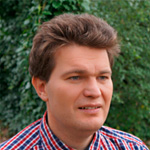
Pieter Spanoghe
Agrolink
Agrolink and AgroFBW : your partner in Agricultural research
Short BioPieter Spanoghe is Professor and has been Head of the Department of Crop Protection Chemistry at the Ghent University since 2012. In an European research context, he has been and is involved in 6 EU projects: (6th EU FW HAIR project).
-
03:00 p.m.

Q&A
Questions and answers from the session
-
03:30 p.m.
Coffee break
-
Session 03: Great Societal Challenges / Crisis and MigrationChair: Euclides de Mesquita Neto
-
03:50 p.m.
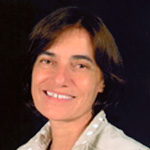
Paula Montero
Faculty of Philosophy, Letters and Human Sciences of the University of São Paulo (USP)
Religion, Law and Secularism in Brazil
Brazilian society has been historically constituted by Catholicism. However, since the end of the 1980s, it is possible to recognize a reconfiguration of Brazilian secularism after the Pentecostal churches expressive expansion which includes a strong influence in the Parliament, media and governmental institutions.
Short BioGraduate at Social Sciences from Universite de Paris VII - Universite Denis Diderot (1973), graduate at Psicology from Université Réné Descartes Sorbonne (1976), master's at Social Antropology from Universite de Paris VIII (1974) and ph.d. at Antropology from Universidade de São Paulo (1983). Has experience in Antropology, focusing on Urban Anthropology, acting on the following subjects: culture, antropology, catholic church, religiositu and identity. Read more at: www.bv.fapesp.br/en/pesquisador/711.
-
04:05 p.m.
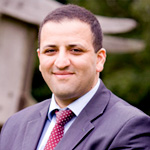
Hassan Bousetta
Université de Liège - Faculty of Social Sciences (CEDEM)
Civic integration trajectory for migrants in Wallonia
Short Bio
Doctor in Social Sciences from the Katholieke Universiteit Brussel (Belgium). He is currently a FNRS (National Fund for Scientific) Research Associate at the University of Liège (Belgium). His work focuses on the political participation of immigrant minorities and on local multicultural policies. Hassan Bousetta has also collaborated to a number of consultancy projects both for private foundations (King Baudouin Foundation), international organisation (Council of Europe), cities (Paris, Antwerp, Bristol) and networks of cities (Eurocities).
-
04:20 p.m.
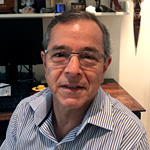
José Marcos Pinto da Cunha
Nucleus of Population Studies Elza Berquó of the University of Campinas (UNICAMP)
Metropolisation and spatial distribution of population in São Paulo: a research agenda
The presentation will emphasize the main issues investigated about the process of metropolization and demographic dynamics in the State of São Paulo.
Short BioBachelor's at Statistics from Universidade de São Paulo (1982), master's at Demography from Centro Latino Americano de Demografia (1984) and doctorate at Sociology from Universidade Estadual de Campinas (1994). Has experience in Demography, focusing on Spatial Population Redistribution and Urbanization, acting on the following subjects: internal migration, sociospatial segregation, intrametropolitan migration, social vulnerability. Read more at: www.bv.fapesp.br/en/pesquisador/358.
-
04:35 p.m.
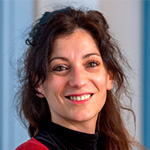
Géraldine André
Institute for European Studies (IES-VUB)
Obstacles and facilitators to youth social and civic participation in Brussels. The case of disadvantaged social groups
Short Bio
She is a doctor in social and political sciences (UCL-Mons, 2009). Holds Masters in Roman Languages, French as a second Language and Antropology (UCL). She was a postdoctoral researcher at the Universities of Antwerp, Liège, UCL and ULB. From 2010 until 2015, she held a postdoctoral fellowship from F.N.S.-FNRS. Her research interests include sociology of education, youth, labour and social inequalities, issues of diversity and discrimination, especially in the educational field.
-
04:50 p.m.

Q&A
Questions and answers from the session
-
05:20 p.m.
Closure Day
October 09th
-
Session 04: Industry 4.0 / Smart CitiesChair: Peter Spyns
-
09:15 a.m.
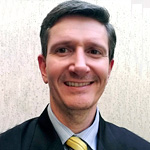
Fernando Pinhabel Marafão
Universidade Estadual Paulista - Sorocaba Campus (UNESP)
Advances and Challenges on Cooperative Control of Distributed Power Conditioners for Smarter Power Grids
Multifunctional power conditioners have been playing a key role in applications related to power quality improvement in modern energy grids, particularly due to their capability to be employed on ancillary services, such as reactive power support and harmonic compensation. Such additional services are particularly interesting in scenarios of low voltage distribution grids, which are known to suffer from the presence of heavy distorted currents and voltages drawn by nonlinear loads. Moreover, with the smart grid perspective rising as a trend in this new energy paradigm, on which independent devices are integrated and operated aiming at global goals, the coordination of every grid-tied power converter spread over the grid becomes crucial. Therefore, this presentation intends to cover the groundwork of a hierarchical control approach that coordinates distributed multifunctional power conditioners based on the analysis of peak current terms circulating within a low-voltage microgrid. Under the premises of respecting the physical limitations of each power conditioner and balancing the microgrid's thermal stress among them, such methodology is able to provide accurate current sharing of active and reactive parcels, as well as supporting distributed harmonic compensation in a selective manner. Computational simulations comprising a single-phase low-voltage microgrid with dispersed power conditioners are presented, focusing on showing the robustness of the proposal regardless the grid voltage condition (being sinusoidal or distorted). Yet, this talk highlights the flexibility of this approach upon different operational goals and driving the microgrid as a fully dispatchable entity. Finally, discussions on the actual faced challenges and other relevant prospective advancements are raised, aiming to emphasize how smarter power grids are dynamic systems, requiring integration and employment of cutting-edge technologies to their management.
Short BioReceived B.S. degree in Electrical Engineering (1998) from Univ. Estadual Paulista (UNESP) and the MSc (2000) and PhD (2004) degrees from University of Campinas (UNICAMP). In 2002, he joined the Power Electronics Group, University of Padova, Italy, as a Visiting Student on digital control techniques for active power filters. In 2013, he joined the ACEPS Group, Colorado School of Mines, USA, as a Visiting Scholar on Autonomous and Intelligent Distributed Energy Systems. He is an Associate Professor at Univ Estadual Paulista, in Sorocaba, Brazil, where he has been teaching since 2005 and had lead the Group of Automation and Integrated Systems from 2007-2011. His research interests include power theories, power quality and power electronics. Read more at: www.bv.fapesp.br/en/pesquisador/35980.
-
09:30 a.m.
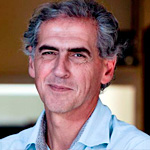
Hugues Bersini
Université libre de Bruxelles (ULB)
Algorithmic Governance: For the people, by the people
Short BioIRIDIA is the oldest Artificial Intelligence lab in Belgium and is involved in the development of methodological support for data and text mining. Pr. Bersini teaches and performs research in the fields of Artificial Intelligence, Object-Oriented technologies and Web Programming both for academics and for entreprises.
-
09:45 a.m.
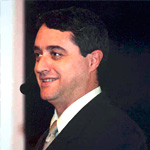
Reginaldo Teixeira Coelho
School of Engineering São Carlos - University of São Paulo (EESC-USP)
Study, development and application of a Hybrid Process: Additive Manufacturing (AM) + High speed Machining /Grinding (HSM/G)
Economic and sustainable production is among the most recent and enduring challenges being faced by the manufacturing area nowadays. The Additive Manufacturing (AM) has arisen with a strong appeal to replace traditional processes. Due to its importance, the main institutions working with AM in the state of Sao Paulo were gathered in order to align the efforts for further developments in such recent and innovative manufacturing technology. Many of its technological challenges are being addressed by the present research project, such as surface finishing of AM workpieces. Because that may not meet quality required in most cases, High Speed Machining/Grinding (HSM/G) will be used for post-processing, creating a Hybrid Process (HyP). In addition, metallurgical quality, material stock to machine and the whole powder production route will also be investigated. Two machines, based on Direct Energy Deposition-DED technology are being employed, compared to a Powder Bed Fusion–PBF one. As a result, the present project will consolidate the research efforts and knowledge acquired to apply them into two particularly suitable products as a benchmark: a mold for injection molding of thermoplastics, and a turbine blade used in energy generation plants. At the end, we will certainly promote scientific and technological advancements in HyP, as well as contribute with some innovations in this recent engineering field.
Short BioMechanical Engineer by the University of São Paulo-USP (1987), MSc. by the same University (1991), PhD in Mechanical Engineering by the University of Birmingham School of Manufacturing and Mechanical Engineering-UK (1995), Visiting Professor at McMaster University- Canada (2005). Currently, is the Professor of Metal Cutting at the São Carlos School of Engineering, Department of Production Engineering. Has experience in Mechanical Engineering, focusing on Machining and Forming Processes, with interest in metal cutting, Grinding, HSM, FEM and Supervisory Systems for metalworking industries. Read more at: www.bv.fapesp.br/en/pesquisador/720.
-
10:00 a.m.
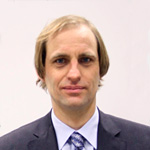
Dick Botteldooren
Ghent University (UGhent)
Topic: Industry 4.0 / Smart Cities
Short BioDick Botteldooren is a full professor at Ghent University where he leads the Acoustics Research group and teaches a variety of courses related to sound and computational methods. He obtained an MSc degree in Electronic Engineering in 1986 and a PhD in Applied Science in 1990 from Ghent University. He is a fellow of the Acoustical Society of America and the chairman of the Belgian Acoustics Society. Botteldooren has made research contributions in the field of acoustic modeling, noise mapping, environmental sensor networks, computational intelligence, modeling perception of environmental sound, health impacts of sound, biomonitoring, urban sound planning, soundscapes, and noise policy support. This work was reported in 105 journal publications and several hundred conference contributions. Based on his expertise he was an advisor for national and international health councils, and noise policy makers.
-
10:15 a.m.

Q&A
Questions and answers from the session
-
10:45 a.m.
Coffee break
-
Session 05: Great Societal Challenges / MetropolesChair: Roberto Marcondes Cesar
-
11:00 a.m.
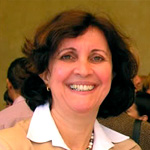
Marta Teresa da Silva Arretche
Center for Metropolitam Studies - University of São Paulo (CEM-USP)
Topic: Great Societal Challenges / Metropoles
Short BioFull Professor at the Department of Political Science of the University of São Paulo, Director of the Center for Metropolitan Studies and editor of the Brazilian Political Science Review. Former vice-provost for research at the University of São Paulo. Graduated at Social Sciences from Universidade Federal do Rio Grande do Sul, master on Political Science from Universidade Estadual de Campinas (1990) and Phd at Social Sciences from Universidade Estadual de Campinas. Visiting researcher at the Department of Political Science of MIT on 2000-2001 and at the Department of Political and Social Science at the European University Institute (2009-2010). Research on the following subjects: inequality, federalism, decentralization, social policies and welfare state. Read more at: www.bv.fapesp.br/en/pesquisador/18680.
-
11:15 a.m.

TBC
Flemish Speaker
Topic: Great Societal Challenges / Metropoles
-
11:30 a.m.
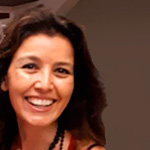
Andrea F. Young
Brazilian National Center for Natural Disaster Monitoring and Alert (CEMADEM)
The concept of green infrastructure and its integration with public policies
The point of departure for this research is to support the process towards territorial cohesion through green infrastructure development with particular attention to management strategies and environmental disasters prevention, such as those events caused by heavy rain seasons or extended periods of drought. The last workshop organized through this research showed that the tensions tend to arise between the establishment of objectives and the implementation practice. Despite the recognition that green infrastructure approach to territorial planning can promote the widest range of functions with a great number of benefits, some Brazilian municipalities have shown great difficulty in implementing this perspective due to barriers detected by different institutions involved. For this reason, the results of this workshop will be presented, with the progress and delays of different municipal realities.
Short BioYoung Researcher (FAPESP) at Brazilian National Center of Monitoring and Early Warning of Environmental Disasters (CEMADEN) from the Ministry of Science, Technology, Innovation & Communication (MCTIC). Graduation and research background - Architecture and Urban Planning combined with Geographic Information System for Social Science and Environmental Planning. Has been involved in scientific programs at both national and international levels working in institutions such as Kings College London (2012-2013), Earth System Science Center (CCST-INPE - 2009-2012), Population Studies Center (NEPO-UNICAMP - 2006-2012). As an architect and urban planner, she is extremely interested in interdisciplinary issues, including climate change, adaptation, urban resilience and low carbon development with focus on urbanization, ecology, and agriculture that have been essential for her present position as a researcher and the main motivation for her professional life. Read more at: www.bv.fapesp.br/en/pesquisador/46623.
-
11:45 a.m.
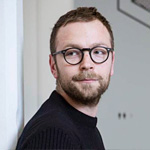
Mathieu Berger
Metrolab Brussels (MLB)
Designing urban inclusion: Metrolab Brussels’ attempt at reconciling practical and critical urban research
Short BioMathieu is a researcher and professor of sociology at Université Catholique de Louvain (UCL). He teaches urban sociology, theories of power and qualitative research methods, among other things. His researches deal, on one hand, with the theories of democratic public spaces and political participation, and on the other, with the social aspects of city planning and urban policies in Europe and the US.
-
12:00 p.m.

Q&A
Questions and answers from the session
-
12:30 p.m.
Lunch
-
Session 06: Industry 4.0 / Bio-economy BiomassChair: Gregory Absillis
-
02:00 p.m.
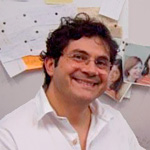
Roberto de Campos Giordano
Federal University of São Carlos (UFSCAR)
Biomass in the low carbon economy: Contributions from Bioprocess Systems Engineering for bridging the gap
It is a consensus nowadays that a sustainable economy will rely on a multiplicity of energy sources, with biomass playing an important role. Furthermore, biorefineries will have to yield molecules and building blocks to replace oil derived products. Nevertheless, an important gap still remains to be bridged: how to make feasible this transition in the real economy? To attain this goal, much work must be done in two strands, namely the “hardware”, with R&D of advanced (bio)processes; and the “software”, developing tools that will support a rational approach for optimizing the production and for pricing products with low carbon impact. Both questions are being addressed by an interinstitutional group of eight laboratories gathered in the FAPESP-BIOEN Thematic Project “From the Cell Factory to the Biodiesel-Bioethanol Integrated Biorefinery: a Systems Approach Applied to Complex Problems in Micro and Macroscales”. In this lecture, their most recent results and on-going work will be shortly reported.
Short BioSenior Full Professor of the Chemical Engineering Department of the Federal University of São Carlos (UFSCar), where he works ever since 1980. His PhD in Chemical Engineering was at the Polytechnic School of the São Paulo University (USP), and he was postdoctoral fellow at MIT, working with Biochemical Engineering. His research activities focus on the modeling, simulation, optimization and control of bioprocesses and on the development of non-conventional bioreactors. He is interested in several industrial biotechnology processes, for production of: biofuels (with emphasis on biodiesel and bioethanol); human and animal vaccines; hydrolysates from residues of dairy and soybean industries; antibiotics via green chemistry and enzymes for industrial applications. Read more at: www.bv.fapesp.br/en/pesquisador/35.
-
02:15 p.m.
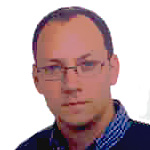
Bert Sels
University of Leuven (KU Leuven)
Topic: Industry 4.0 / Bio-economy Biomass
Short Bio
Bert Sels obtained his PhD degree at the Catholic University of Leuven on oxidation chemistry, after which he did a post-doc with BASF until then a post-doc for the National Science Foundation dedicated to the “activation of nitrous oxide” and the “microscopic imaging of catalytic events”. He currently is Full Professor at Leuven the Faculty of Bioengineering Sciences.
-
02:30 p.m.
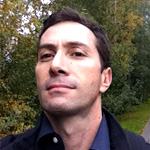
Fernando Segato
School of Engineering - University of São Paulo (EEL USP Lorena)
Exploring hydrolytic and oxidative mechanisms of thermophilic fungi: Development of lignin active enzyme mixture to produce sugars from lignocellulosic biomass
Production of fuels and chemicals from renewable lignocellulosic biomass is difficult due to its recalcitrance to deconstruction. This recalcitrance is mostly due to presence of lignin in plant cell walls. Lignin is disrupted and/or removed from plant cell walls through expensive physicochemical pretreatments that use harsh chemicals, high temperatures and high pressures. Lignin in lignocellulosic biomass is resistant to attack by most organisms; however, some fungi produce a number of enzymes that can degrade lignin. Analyzing the transcriptome and/or secretome of thermophilic, different mechanisms (hydrolytic and oxidative), to degrade lignocellulosic materials was verified. When the enzymatic extracts were mixed, the activity increased up to five-fold. These results led our group to investigate the enzymes that could be acting collaboratively to improve the lignocellulosic biomass saccharification. For this, we have used techniques of high throughput analysis, molecular biology and heterologous protein expression, as tools to better understand the enzymatic interaction that led to increase the lignocellulose biomass saccharification.
Short BioGraduated in pharmacy-biochemistry in 2001 and obtained his Ph.D. degree in Genetics and Molecular Biology from Medical School of Ribeirão Preto, USP in 2008. He was a post-doctoral researcher at the Department of Microbiology and Molecular Genetics of Oklahoma State University and National Laboratory of Science and Technology of Bioethanol. He actuated as researcher at VTT – Technical Research Center of Finland and Physical Institute of São Carlos, USP. In 2014, he joined the Engineering School of Lorena, USP, as assistant professor. Since that, he actuated as visiting professor at Oklahoma State University and University of Nebraska at Lincoln. His research interests include heterologous expression of proteins from mesophilic and thermophilic microorganisms, exploring oxidative mechanisms in asco- and basideomycetes. His group also is exploring CRISPR-cas9 as tool to the development of fungal cell factory. Read more at: www.bv.fapesp.br/en/pesquisador/44885.
-
02:45 p.m.
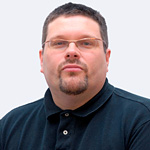
Guy De Weireld
University of Mons (UMons)
Acidic gas removing from biogas by adsorption: study for assessing the performances of Metal-Organic Frameworks
Short BioResearcher and full professor in the fields of thermodynamics, physics and mathematics.
-
03:00 p.m.

Q&A
Questions and answers from the session
-
03:30 p.m.
Coffee break
-
Session 07Chair: Marie Beheyt
-
03:50 p.m.
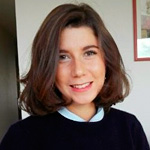
Clarelisa Camilleri
European Network of Research and Innovation Centres and Hubs (ENRICH)
ENRICH presentation
Short BioProject Manager at the European BIC Network (EBN), Clarelisa oversees the EBN Certification Process and coordinates the activities of several non-EU funded projects aimed at improving business support services provided to innovative entrepreneurs in Europe and abroad. Clarelisa is also supporting the ENRICH Soft Landing Hub and its certification process to ensure the quality of the services provided to European and Brazilian entrepreneurs.
-
04:05 p.m.
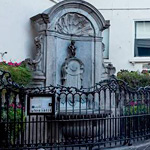
Round Table: Perspectives for Future Collaborations
FAPESP, WBI, FNRS, FWO and EWI representatives
-
05:15 p.m.
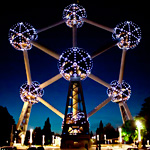
Closing Remarks
FAPESP, WBI, FNRS, FWO and EWI representatives
-
05:15 p.m.

Museum Visit
-
06:00 p.m.
Networking Cocktail
October 10th
Organizing Committee
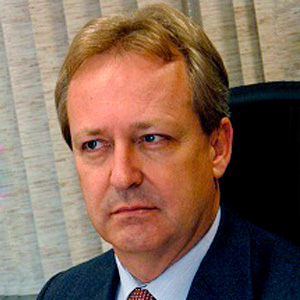
Euclides de Mesquita Neto
São Paulo Research Foundation (FAPESP) / Adjunt Panel - Special Programs and Collaboration in Research
Full professor at the Dept. of Computational Mechanics from the School of Mechanical Engineering at the University of Campinas (Unicamp) and member of the Adjunt Panel - Special Programs and Collaboration in Research at FAPESP. He was head of the Department of Computational Mechanics at (Unicamp) for two terms. He coordinated the Graduate Programs at the School of Mechanical Engineering for one term. From 2009 to 2013, he was vice-president for graduate affairs at Unicamp.
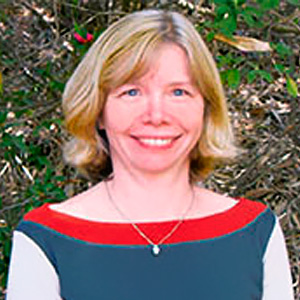
Marie-Anne Van Sluys
São Paulo Research Foundation (FAPESP) / Adjunt Panel - Life Sciences
Dr. Van Sluys is a full professor in the Botany Department of the Universityof São Paulo. She is the head of the Genomic and Transposable Elements (GaTE) Laboratory, operated under the auspices of the USP Laboratório de Biologia Molecular de Plantas (LBMP, Laboratory of Plant Molecular Biology), the central focus of which is to study the impact of transposable elements in the structure, function, and diversification of bacterial genomes and plants.
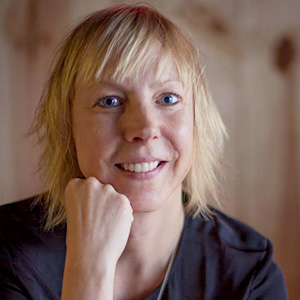
Julie Dumont
Scientific Liaison Officer for Wallonie-Bruxelles International
Julie Dumont works as Scientific Liaison Officer in Brazil for Wallonie-Bruxelles International, the international relations department of the french part of the country, fostering R&D cooperation between Brazil and Wallonie-Bruxelles. She worked previously as lawyer specialized in intellectual property and licensing in the Technology Transfer Office of the Université Libre de Bruxelles. She has a degree in Law from this latter university, oriented toward international and intellectual property law.



